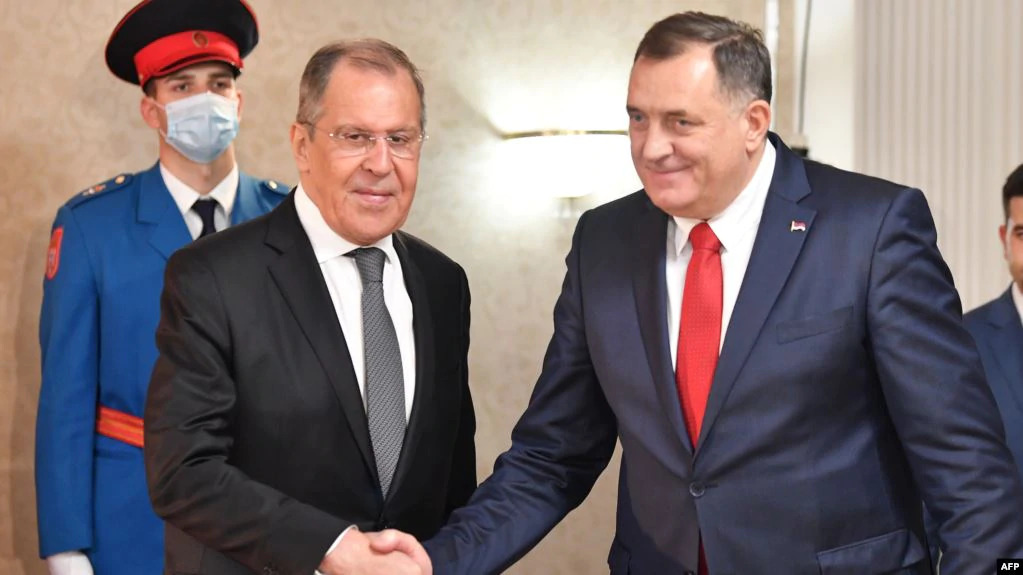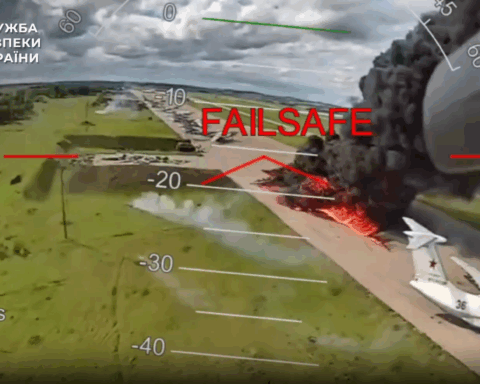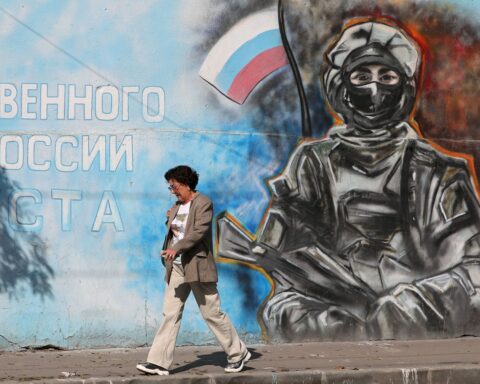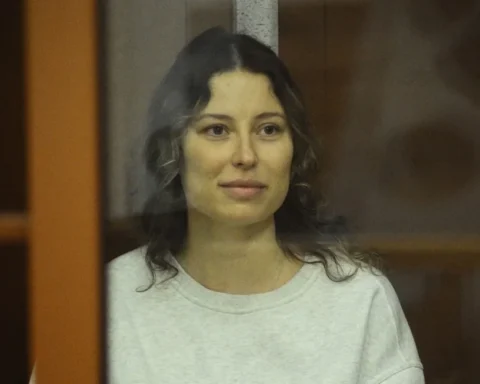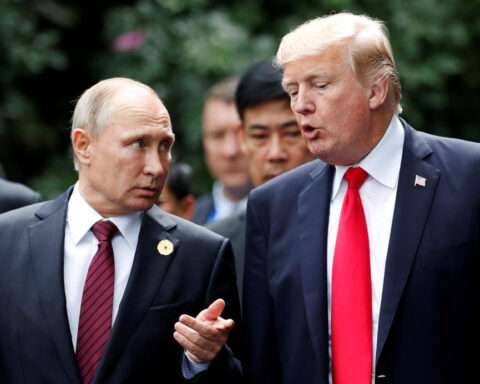The embarrassing episode began when Milorad Dodik, the Republika Srpska representative of Bosnia-Herzegovina’s tripartite presidency, presented Moscow’s top diplomat with the artwork on December 14.
“The icon will be returned to its donors for further clarification on its history via Interpol,” the Russian Foreign Ministry told journalists five days later.
A shared image of the artifact and its seal had suggested it might be from the Ukrainian city of Luhansk, which has been mostly controlled by Russia-backed separatists since 2014.
Its seal appeared to clearly state that it was Ukrainian “cultural heritage” under protection of authorities in the Odesa region.
The Ukrainian Embassy in Sarajevo quickly sent a letter to the Bosnian Foreign Ministry demanding a “public, immediate, and unambiguous denial by the state leadership” of the reports that suggested it had possessed or transferred an important cultural, historic, and religious artefact originating in Ukraine.
The Bosnian ministry redirected the Ukrainian request to the Bosnian Presidency, which is a frequently awkward, ethnically based power-sharing arrangement stemming from the Dayton Agreement to end the Bosnian War in 1995.
Problematic Visit
Bosnian Serb leader Dodik has repeatedly threatened to try and secure independence for the Serb-dominated Republika Srpska, which along with the Bosniak and Croat federation composes Bosnia.
Lavrov’s visit this week proved problematic in other ways, too.
He cut out planned events after the Bosniak and Croat members of the Bosnian Presidency declined to meet with him over his choice to begin his visit on December 14 at Dodik’s offices outside Sarajeva and because of Lavrov’s reported suggestion that the Dayton terms should remain in place. He also was said to have supported Dodik’s rejection of Bosnia’s NATO aspirations.
The statements were seen by joint presidents Sefik Dzaferovic, a Bosnian Muslim, and Zeljko Komsic, a Croat, as “disrespectful” toward Bosnia.
The Dayton agreement, which turned 25 last week, salvaged Bosnia’s statehood and saved many lives by ending bitter fighting between Bosniaks, Croats, and Serbs.
But its ethnically based divisions and decentralization of power parceled up authority normally vested in a central government.
Republika Srpska’s threats to secede from Bosnia and Serbia’s reluctance to recognize its former province of Kosovo as an independent country are two of the key issues hindering some Balkan countries’ ambitions to join the European Union and, in some cases, NATO, along with rampant corruption and threats to the rule of law.
By RFE/RL’s Balkan Service


